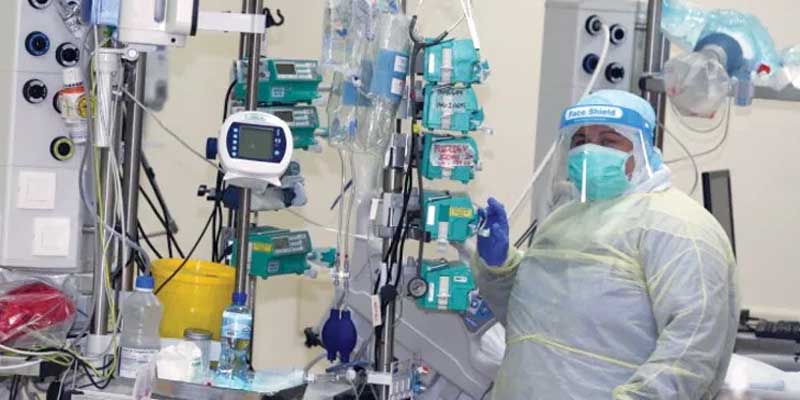Web Desk
A series of conditions and measures regulating the travel of citizens and residents from the UAE will be in place with effect from June 23, WAM reported. This was announced by Dr. Saif Dhaheri, the Spokesperson for the National Emergency Crisis and Disaster Management Authority (NCEMA), the WAM reported.
“Travel will be allowed to certain destinations according to a strategy that has classified all countries of the world into three categories: first, low risk nations to which all citizens and residents are allowed to travel. The second, medium-risk nations to which only a limited category of citizens are allowed to travel to in case of emergency, namely for necessary medical reasons, visiting first-degree family members, or for military, diplomatic and official missions. The third are high-risk countries to which travel is categorically banned,” he said.
Dr. Saif added that a travel protocol will be enforced and will have a number of tenets, namely public health, medical tests, prior travel registration, quarantine, self-follow-up of traveler’s health status and awareness of the precautionary measures.
He listed various mandatory prerequisites that travellers have to abide by before departure, and upon return to the UAE.
All citizens and residents have to apply for a travel request through the Federal Authority for Citizenship and Identity website and register in the Twajudi service prior to travel. They must undergo a COVID-19 test before travel as the health regulations in the country of destination may require a test result which dates back to no more than 48 hours before the travel date. The test result has to be displayed at the country’s airports via the Alhosn app. Only travelers who tested negative for the virus will be allowed to travel.
People over 70 years old will not be allowed to travel. People with chronic diseases are also advised not to travel for their own safety. An international medical insurance covering the country of destination is a must for all travellers.Everyone must comply with the preventive measures at airports, such as wearing face masks, gloves, constant sanitization of hands and maintaining safe physical distance.
People with temperature of more than 37.8℃ or those with respiratory disease symptoms will be isolated. Any persons suspected to have contracted Covid19 will not be allowed to travel.
Emirati and resident travelers must fill the individual health accountability form, which includes an agreement to undergo quarantine upon return and not to go to destinations other than the ones applied to.
Dr. Saif also highlighted the mandatory provisions to be adhered to upon arriving at the country of destination and before returning to the UAE. If the traveller feels unwell, they should go to the nearest health center and use their health insurance. If the traveller conducts a test for COVID-19 in the country of destination and the result is positive, they should notify the UAE embassy at that destination, either through Tawajudi Service or by contacting the embassy. The UAE mission will ensure that COVID-19 patients are taken care of and the UAE Ministry of Health and Prevention is notified.
Dr. Saifalso spoke about the mandatory provisions to be adhered to upon return to the UAE. Everyone must adhere to wearing face masks at all times upon entry. All travellers must show a special form of their itinerary, in addition to the health status form, along with their identification documents.
Travellers must ensure they download and activate MoHAP’s ALHOSN app on their mobile phones. On return, travellers must undergo a home quarantine for 14 days after the COVID-19 test, which could decrease to seven days for travellers arriving from countries with lower risk or for professionals in critical sectors. Travellers with any symptoms must commit to undergo Covid-19 tests in an accredited medical facility within 48 hours of entering the country.
If it is not possible to undergo home quarantine, the traveller must commit to self-quarantine in a facility or at a hotel and pay all expenses.
Dr. Saif also outlined additional provisions for those on study scholarships, those on medical treatment trips, members of diplomatic missions and those on business trips from public or private sectors. They should coordinate with the respective authorities.






























